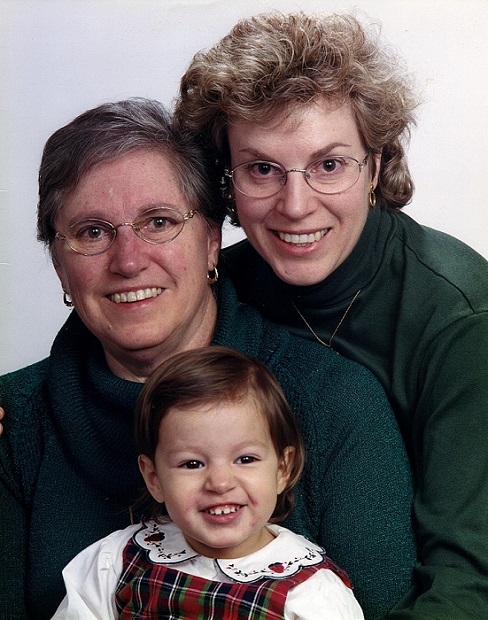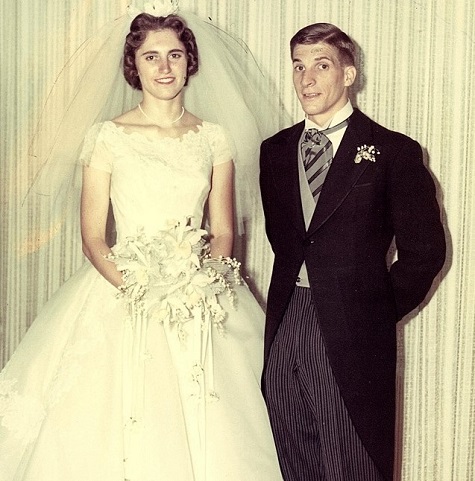The Gift of a Clearly Established Estate Plan
The last thing your heirs need while grieving your death is a jumble of confusing paperwork.
Guest Article by Terry Doherty
 My parents were planners. If we were getting together as a family; three weeks before, Mom would call to let us know she was working on the menu. Back then, her fastidiousness was a regular point of humor for us. Now, we realize it was a gift.
My parents were planners. If we were getting together as a family; three weeks before, Mom would call to let us know she was working on the menu. Back then, her fastidiousness was a regular point of humor for us. Now, we realize it was a gift.
I didn’t realize just how generous that gift was until recently, when I became the trustee of her estate.
Just like those menus, my parents planned for everything, including life after their deaths. Neither she nor Dad wanted to make things hard for us, and they didn’t. They ensured that when one of them died, the other would be “okay” financially and while living as a widow(er).
When my dad died five years ago, the estate attorney breezed through the paperwork. Then he looked at me and said, “When your mom dies, that’s when you’ll have all the hard work.” Mom heard it too. She worked with the attorney to prepare for our lives after her death.
In the weeks since Mom died, I have lost track of how many times attorneys, financial planners, court officials, funeral home folks, and realtors have said, “What a gift your mother gave you.”
What is this gift?
It is a roadmap contained in a binder labeled, “Directory of Important Information.” All versions – the ones on Mom’s desk, in the safe deposit box, and my copy were kept current.
The “Directory” included the following tabs:
- Preplanned Death Arrangements
When they were in their 60s, my parents bought a pre-paid burial package. It was a godsend knowing exactly who to call and what Mom wanted after she died – viewing preferences, cremation, no obituary. - “What is Where” List
Thanks to this document, I knew exactly where to find the safe deposit box key, a list of account numbers and passwords, medical and service providers’ names and phone numbers, and where to find original documents. - Copy of Powers of Attorney
- Copy of Advance Medical Directives
- Copy of the Will
Mom’s will is short and sweet. It explains her financial plan and the rest is to be “divided three ways.” Mom’s will did not contain all the “I want Terry to have …” items. She started writing bequests in an estate planning notebook, but never finished it. I am fortunate, that my brothers and I get along well. We haven’t had the in-fighting we often hear about. - Household Inventory
There were three deodorants in the master bath linen closet when Mom passed. Did I need that level of detail? No, but having that master inventory with what each item cost helped us decide what to donate and what to sell or consign. - Home Improvements
We have a list of maintenance items, such as how often someone came to check the HVAC and a list of capital improvements. We know when she replaced the stove. We know what it cost to build the stone wall out back. She also has an album of pictures of the yard through the years with ID tags for the plants, so the next owner knows where to find what, when it will grow, and how to care for it.
 My parents were of an era where you left an inheritance first for your spouse and then your children and grandchildren. Not only did they plan for that, they also ensured that it created minimal tax burden for us. They created a trust that remained for many years before rolling to Mom after my dad died. Before she died, she made revisions so that I would be able to handle the estate.
My parents were of an era where you left an inheritance first for your spouse and then your children and grandchildren. Not only did they plan for that, they also ensured that it created minimal tax burden for us. They created a trust that remained for many years before rolling to Mom after my dad died. Before she died, she made revisions so that I would be able to handle the estate.
Mom and Dad did the following.
- They designated beneficiaries for their two IRA accounts.
In our state, this designation kept the accounts outside the trust. This meant that the court only considered the value of Mom’s assets in the trust. Until her death the trust was the “savings account” that held her annuity and other savings. Now, we have a court document that moves the house into the trust. When it is sold, the money goes directly into the trust. - Mom set up the trust in a way that I became successor trustee instead of executor.
As the trustee, I have the same roles and functions as an executor, but without some of the legal hurdles and burdens that go with that job (e.g., regular reporting to the court on the status of the estate). This step was truly a major gift along her roadmap.
The only thing my parents couldn’t have anticipated was technology. By law, funeral homes are now required to notify the Social Security Administration that a person has died. That notification triggers a series of events that freezes the decedent’s accounts immediately. Upon Mom’s death, my Power of Attorney was no longer valid, so we had no means of “unfreezing” the accounts to pay her bills (mortgage, utilities, etc.).
Had she known this, Mom probably would have kept cash in the safe deposit box. In our state, it takes 60 days after death to get the Small Estate Affidavit required to unfreeze the accounts. We are fortunate and could tap savings in the interim, but many families do not have this luxury.
One of the hallmarks of our family is that we pay forward the gifts we receive. We will follow in Mom and Dad’s footsteps and incorporate lessons learned in our own estate planning.
Terry Doherty is a member of the Sandwich Generation. She’s in her mid-50s, married 27 years with a teenage daughter. She became a Jazzercise Instructor in 2016, in part, to demonstrate to her daughter that you do what you love, never stop learning, and keep stretching your comfort zone. When she’s not teaching, you’ll likely find her reading and reviewing books for her nonprofit The Reading Tub [TCV Update 2/1/2024 URL no longer available].









Beautifully written sis.
Love this! Terry is already “paying it forward” by sharing her parents’ road map.